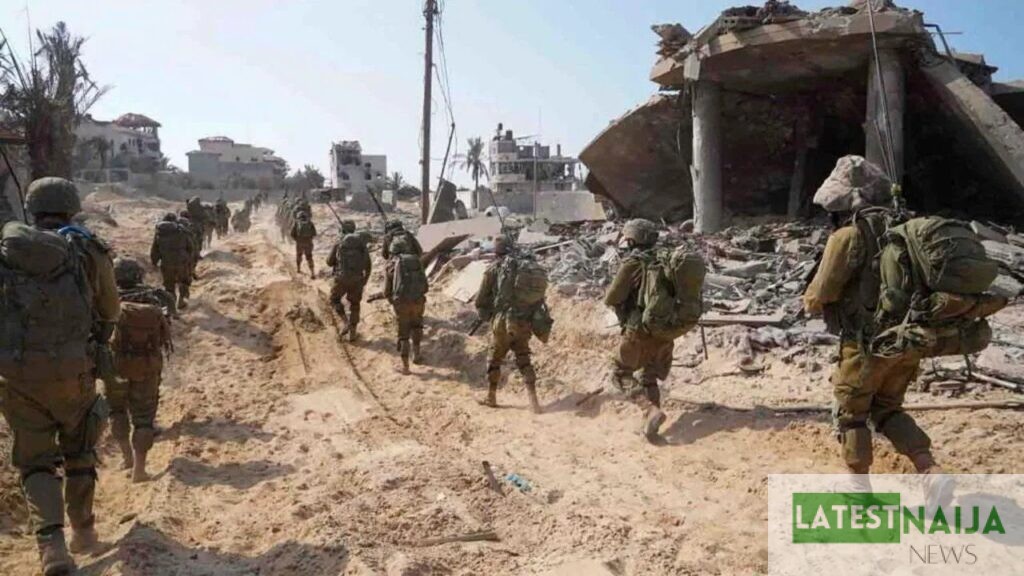Israeli forces have expanded their offensive in northern Gaza, with tanks advancing to the northern edge of Gaza City, targeting areas in the Sheikh Radwan neighborhood. According to local residents, heavy shelling has forced many families to flee their homes as the military operations intensify.
Reports indicate that Israeli forces have effectively isolated key northern towns, including Beit Hanoun, Jabalia, and Beit Lahiya, cutting off access to Gaza City. Residents claim that movement between these areas is restricted unless permitted by Israeli forces, allowing only those complying with evacuation orders to leave, according to Reuters.
Gaza’s health ministry has reported that the ongoing Israeli incursion, which has lasted for over a week, has resulted in the deaths of dozens of Palestinians. Many others are feared dead, trapped beneath the rubble of destroyed homes or stranded on roads, unreachable by medical teams.
Amid this devastation, some residents of Jabalia took to social media to express their defiance. “We will not leave, we die, and we don’t leave,” many posted, signaling their refusal to evacuate despite the escalating violence.
UN Warns of Rising Hunger in Lebanon as Conflict Escalates
Meanwhile, the conflict’s effects have reached Lebanon, where a leading United Nations expert has warned of a severe food crisis if Israel follows through on threats to intensify its military operations. Michael Fakhri, the UN special rapporteur on the right to food, cautioned that Lebanon could face exponential increases in hunger and malnutrition if the situation worsens.
“Israel has the ability to starve Lebanon – like it has starved Palestinians in Gaza,” Fakhri stated. He explained that Lebanon’s geography gives Israel significant control over its food system, potentially strangling access to essential supplies.
Lebanon’s food security was already fragile before the escalation, with the UN World Food Programme noting that 40% of local farmers have been displaced due to growing hostilities with Hezbollah since October 7. This disruption has severely impacted food production, trade, and market access, worsening the humanitarian situation.
In southern Lebanon, where communities have been uprooted from their homes and farmland, the situation is dire. Heavy aerial bombardments have also extended to civilian areas in Beirut, making access to adequate food increasingly difficult for the population.



Comments are closed.